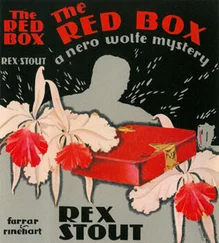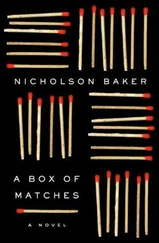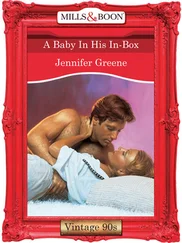“I want this investigation to proceed quickly and I want somebody rotting in my jail by Christmas,” Barnum barked. “Pickett, we need your statement.”
The deputies in the room, many wearing the sloppy civilian clothes they’d had on when they were abruptly called into the department, turned and looked at Joe, seeing him back there for the first time.
“You’re a damn mess,” one of them said, and somebody else laughed.
It was two-thirty in the morning before Joe got home, and he drove by his house twice before seeing the yellow smudge of the porch light that looked like an erasure in the storm. The wind had come up, turning a heavy but gentle snowfall into a maelstrom.
After bucking a three-foot snowdrift that blocked the driveway and sent him fishtailing toward the garage, he turned off the motor and woke Maxine. The Labrador bounded beside him through the front lawn, leaping over drifts. Joe didn’t have the energy to hop, so he plowed through, feeling snow pack into the cuffs of his Wranglers and into his boot-tops for the second time that day. Snow swirled around the porch light like smoke. Christmas decorations, made by the girls in school, were taped inside the front window, and Joe smiled at the Santa drawing that Sheridan had done the previous year. Unnoticed by most, Sheridan had added a familiar patch, with a pronghorn antelope profile and the words WYOMING GAME AND FISH DEPARTMENT, to Santa’s red coat-sleeve.
The small house had two storeys, with two small bedrooms, a detached garage, and a loafing shed barn in the back. Forty years old, the house had been the home and office of the two previous game wardens and their families. Across Bighorn Road was Wolf Mountain, which dominated the view. In back, beyond rugged sandstone foothills, was the northwest slope of the Bighorn range. He could see none of it in the dark and through the snow.
The people he met in the field were mostly hunters, fishermen, ranchers, poachers, environmentalists, and others Joe lumped into a category he called “outdoorsmen”-but his home was filled with four blond, green-eyed females. Females who were verbal. Females who were emotional. He often smiled and thought of this place as a “House of Feelings.” If the expression of feelings produced a physical by-product, Joe could imagine his house filled with hundreds of gallons of an emotional goo that sometimes spilled out of the windows and doors and seeped from the vents. But his family was everything to him; this place was his refuge, and he wouldn’t have had it any other way.
He shut out the storm as he closed the door, and he clumsily peeled off his first layer of clothing in the tiny mud room. He hung his bloody parka on a peg and unbuttoned his green wool Filson vest. He stamped packed snow out of his trouser legs, then left the Sorel pak boots on a bench to dry. His wet black Stetson went crown-down on an upper shelf.
Sighing, wondering why Marybeth still had her light on, he entered the living room in the dark, banged his shin on the foot of the fold-out couch bed, and fell on top of his sleeping mother-in-law. She woke up thrashing, and Joe scrambled to his feet.
“What are you doing, Joe?” she asked, her tone accusatory.
Up the stairs, another light came on. Marybeth had heard the commotion, Joe hoped.
“I didn’t want to turn on a light,” Joe answered, sheepishly. Not adding: I forgot Marybeth told me you’d be here.
When Joe had called home earlier from the sheriff’s office, Marybeth had said that her mother, Missy Vankueren, might be staying with them tonight. Apparently, Missy had been flying to Jackson Hole to go skiing with her third husband, a wealthy and politically connected Arizona real estate baron, when the weather diverted the plane to Billings. So Missy had rented a car, driven the two hours to Saddlestring, and arrived just as the storm moved in. Mr. Vankueren was to meet her in a couple of days, after some important meetings in Phoenix. And now Joe Pickett, the man her favorite daughter had chosen despite Marybeth’s incredible potential and promise, had just awakened her in a half-dressed state by falling on her bed.
“Hi, Missy,” Joe grunted. “Nice to see you.” Missy clutched her blankets to her chin and peered over them at him. Without the expertly applied mask of makeup she usually wore, she looked all of her sixty-two years. Joe knew she hated being seen when she wasn’t prepped and ready.
Marybeth came down the stairs tying her bathrobe, instantly sized up the situation between her mother and her husband, and forced a smile. Joe wanted to mouth help me, save me, but he didn’t dare for fear Missy would see. The small front room was filled not only with the length of the couch bed but the seasonal addition of the Christmas tree that stood silent and dark in the corner. Floor space was at a minimum, and Joe had to scuttle sidewise like a crab to cross the room.
“Sorry, Mom,” Marybeth said, tucking the disturbed sheet corners back under the mattress. “Joe’s had a very bad day.”
“And I’m having a bad night,” Missy said, averting her gaze from Joe. “I’m supposed to be in our condo in Jackson Hole.”
“But instead you’re on our crummy couch bed in our lousy living room,” Joe finished for her, deadpan as he headed for the stairs. Marybeth shot him a look over her shoulder as she finished re-tucking her mother. He listened as Marybeth calmed Missy, told her that it was still snowing, asked her if she was warm enough, asked her… something else, which he didn’t pay attention to.
Missy Vankueren was the last person Joe wanted to see in his home right now. The day had been a nightmare. Now this, he thought, as he slowly climbed the stairs.
Marybeth looked tired and worn out, but she had listened in wide-eyed silence as he told her everything. When he came to how he had found the body, she had pressed her hands to her mouth and winced.
“Are you going to be okay?” she asked in a whisper when he was through talking.
“Yes,” Joe said, but really wasn’t sure about that.
Marybeth held him and looked him over. “I think you should take a shower, Joe.” He nodded dumbly.
In the shower, he wanted to see blood wash down the drain so he could feel clean. But the blood from Lamar Gardiner had been on his coat and clothes, and it had not seeped through to his skin.
Joe dried and slid into bed next to Marybeth. Her bed lamp was still on, and he asked her about it.
“It’s been a bad day for the girls and me as well,” she said, turning to him. “Jeannie Keeley is back in town.”
Joe ran a hand over his face and rubbed his eyes. Now he understood why Marybeth looked so drawn and tired. He had originally thought she had been worried about him, or because of the unexpected visit by her mother. It was those things, he realized, and more.
Marybeth told Joe what the girls had seen after school-the procession of vehicles and particularly the one that stopped. She said April had described the woman who stared as “the mom who went away.”
“Joe, why do you think Jeannie Keeley is back?” Marybeth asked.
Joe shook his head, not knowing. He was too tired to think clearly.
Waves of exhaustion washed over him, pounding at him. He moaned at the possibility of further delays, or a fight for April.
The hard fact was that April’s situation was precarious. Although she had been with them for four years and was as much a daughter as Sheridan or Lucy, April was not legally theirs.
April’s biological mother, Jeannie Keeley, had dropped two things off at the local branch bank when she left town after her husband Ote had been murdered: her house keys and April. Marybeth had heard about it and immediately offered to keep the girl until the issue could be resolved.
Читать дальше












